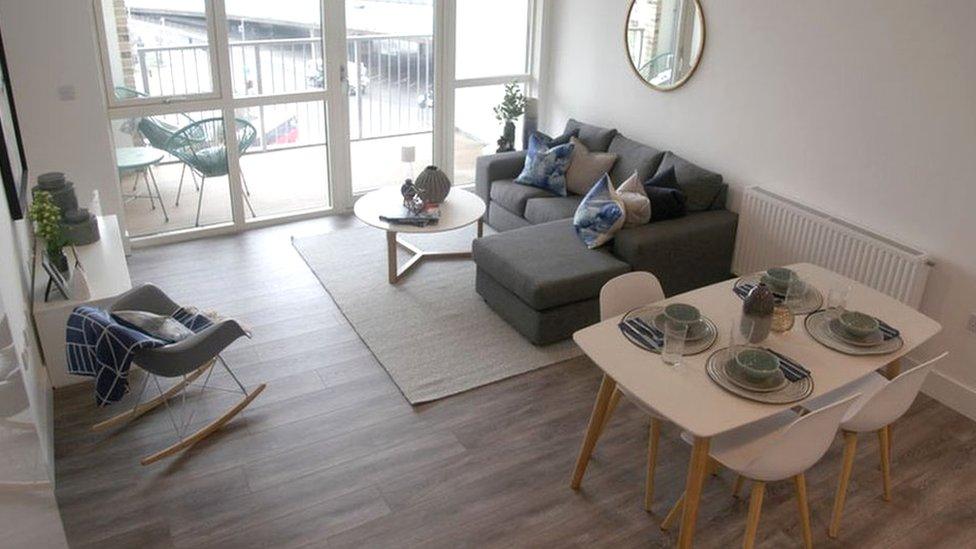Up to a third of millennials 'face renting their entire life'
- Published
- comments
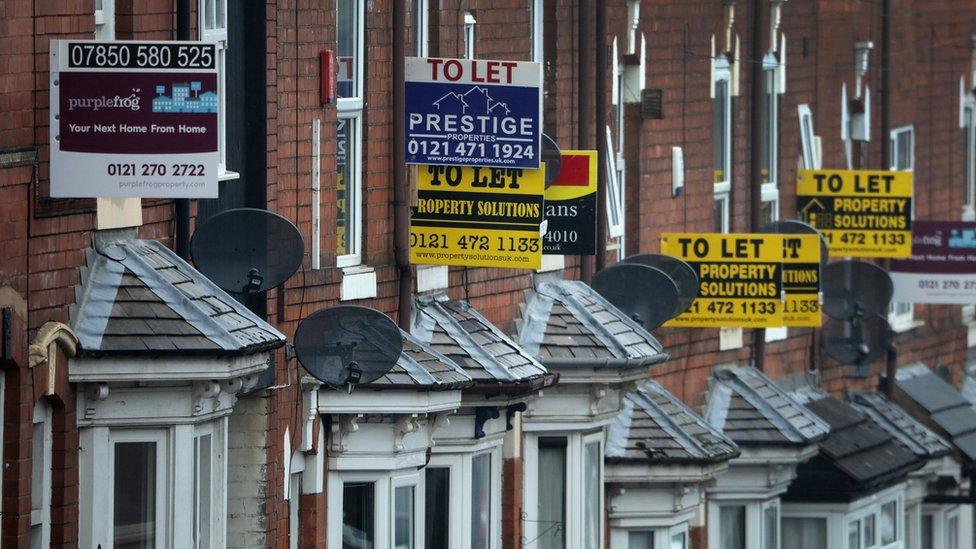
Up to a third of young people face living in private rented accommodation all their lives, a new report by the Resolution Foundation has found.
The think tank, which aims to improve the standard of living of low and middle-income families, said 40% of "millennials" - those born between 1980 and 1996 - were living in rented housing by the age of 30.
That was twice as many as "generation X" - those born between 1965 and 1980.
The government said it was already putting policies in place to improve the housing market.
The Foundation's Home Improvements report said "generation rent" needed much more help. It called for more affordable homes for first-time buyers to be built, as well as better protection for those who rent.
Although renting is often a reasonable choice for people who have few ties, the private rented sector is "far less fit for purpose" for those with children because of a lack of security.
The report reveals that a record 1.8 million families with children rent privately, up from 600,000 15 years ago.
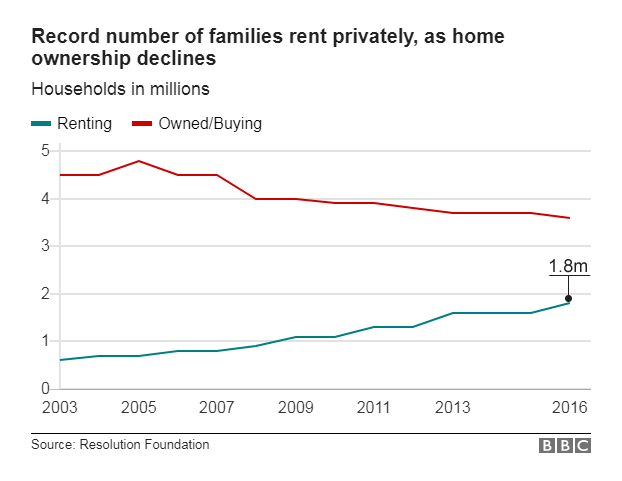
It adds that while housing benefit should be able to help millennial families, its value has been reduced relative to the generation who came before them.
Lindsay Judge, senior policy analyst at the Resolution Foundation, said: "Britain's housing problems have developed into a full-blown crisis and young people are bearing the brunt - paying a record share of their income on housing in return for living in smaller, rented accommodation.
"While there have been some steps recently to support housebuilding and first-time buyers, up to a third of millennials still face the prospect of renting from cradle to grave.
"If we want to tackle Britain's housing crisis we have to improve conditions for the millions of families living in private rented accommodation. That means raising standards and reducing the risks associating with renting through tenancy reform."

'Caught in a cycle of renting'
Leah Wilson told Today how difficult it was to save for a house
Leah Wilson is in her early 20s and is living with her parents and cannot afford to get on the housing ladder.
She told Radio 4's Today programme: "I've currently been saving for about two or three years now but I do find it very difficult due to the fact that my wages don't always match my expenditure and I don't always get the opportunity to save every month.
"The prices are just too ridiculous to even consider buying. I think that a lot of people my age turn to renting because it is cheaper in the beginning and you just get caught in a cycle of renting and can't save up."
Are you stuck in the rent trap? BBC News has set up a new UK Facebook group all about affordable living. Join the Affordable Living group here., external

The report says the tax system should be changed to discourage second home ownership, reducing stamp duty for people who own one home and increasing surcharges for second home owners.
It also calls for "light touch" stabilisation policies to limit rent increases to the rate of inflation over a three-year period.
The experience of those who rent has become much more important politically as the numbers have increased.
The accountancy firm PwC predicts that as the price of owning a home rises, 7.2 million households will be in rented accommodation by 2025, compared with 5.4m now and 2.3m in 2001.
The Labour Party has already proposed a cap on rent increases, along with three-year tenancies and a licensing scheme for landlords.
The party has also said it will build more council houses.
Buying a house made "impossible" by rental costs
The Liberal Democrats are proposing a "rent-to-buy" scheme to help renters purchase the homes they live in, as well as far more shared ownership and social housing.
A Department of Housing, Communities and Local Government spokesperson said: "Our Help to Buy scheme and the recent cut in stamp duty are helping more young first time buyers get on the property ladder. Figures show that we are seeing the highest number of first time buyers for more than a decade.
"But we're also ... giving councils stronger powers to crack down on bad landlords and consulting on stronger protections for tenants themselves."
- Published17 April 2018
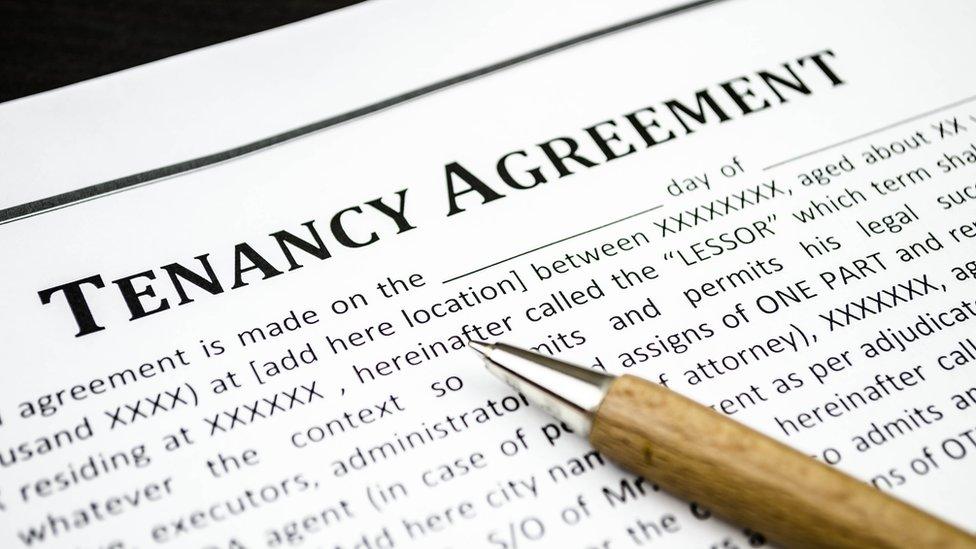
- Published9 July 2020

- Published3 December 2017
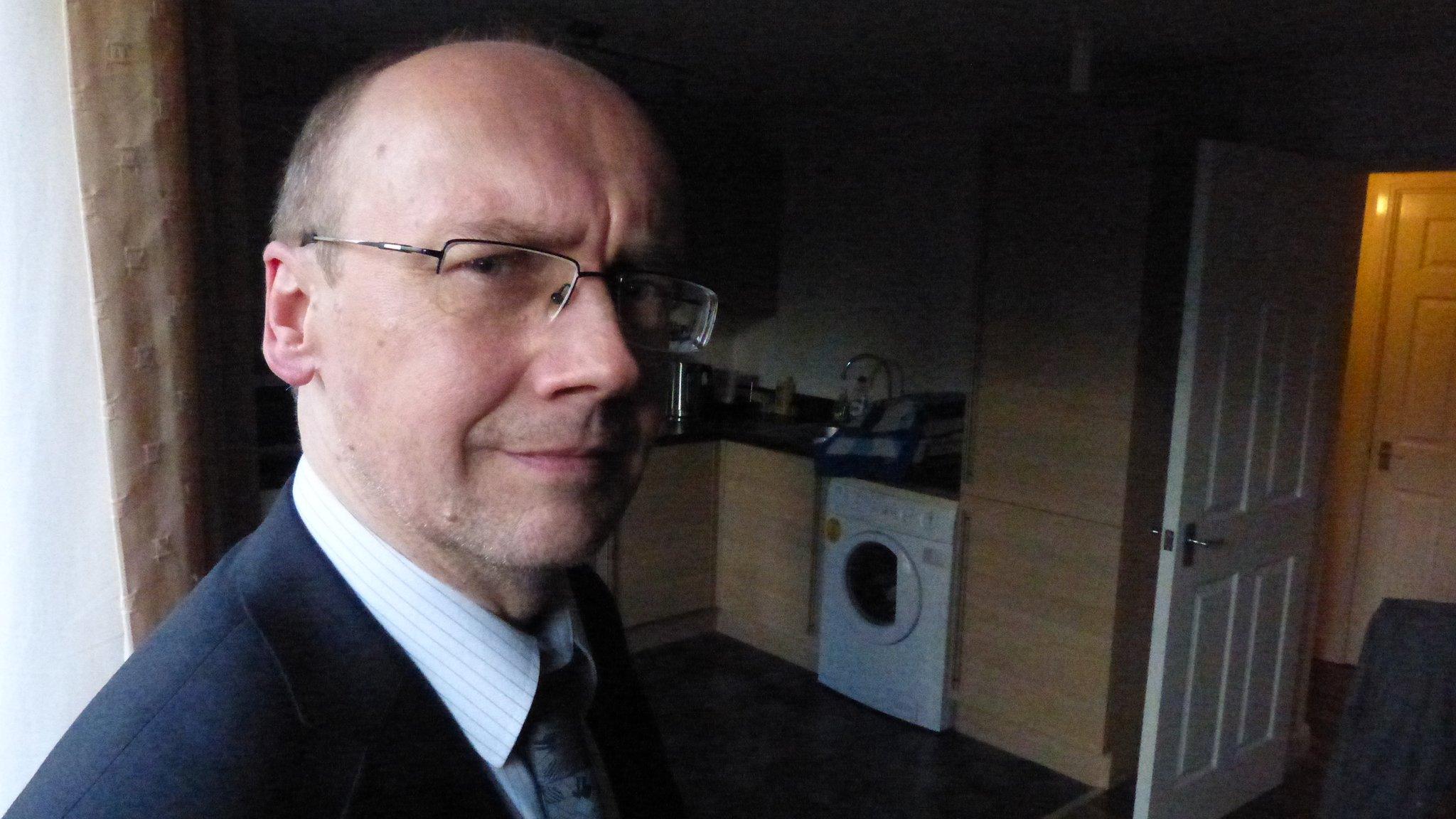
- Published25 March 2018
